A First Look at Snow Lynx Bengal
When you dive into the mesmerizing world of cats, you might stumble upon the enchanting Snow Lynx Bengal. This breed is like a canvas painted by nature itself, boasting a unique blend of elegance and playfulness that’s hard to resist. Let me share my first look at this captivating feline, which is truly a visual delight.
Aesthetic Appeal
The Snowy bengal lynx is recognized for its striking coat, featuring a creamy background adorned with dark rosettes and spots. Here are some standout traits that caught my eye:
- Dramatic Coloration: The soft, light-colored fur often glows with a silvery sheen, making it look almost ethereal.
- Distinctive Markings: Each cat has a unique pattern, like nature’s own fingerprint, showcasing swirling patterns that are simply mesmerizing.
- Expressive Eyes: Their large, almond-shaped eyes can vary from a vivid blue to a rich green, radiating curiosity and intelligence.
Personality Traits
Beyond their stunning appearance, Frosted bengals are known for their spirited and engaging personalities. Here’s what I’ve noticed:
- Energetic: They have an almost endless supply of energy, making them playful companions that love to explore.
- Affectionate: This breed enjoys being around people and often seeks out attention, making them perfect cuddle buddies.
- Intelligent: Their sharp minds thrive on interactive play, puzzles, and challenges that keep them stimulated.
In my journey of exploring this fascinating breed, I found that the Lynx-patterned bengal is not just a pretty face; it’s a delightful mix of beauty and brains. If you’re considering adding a feline friend to your home, this breed might just be the perfect addition.
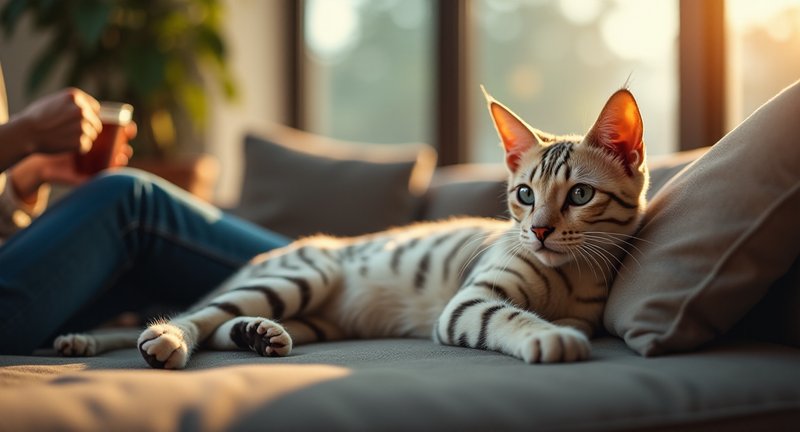
The Charm of Snow Lynx Bengal
There’s something enchanting about those striking felines with their unique coats, reminiscent of frost-kissed landscapes. I remember the first time I laid eyes on one; it was like a living piece of art, a masterpiece of nature’s creativity.
Their silvery fur glimmered in the sunlight, catching my breath in its ethereal glow. Each spot and rosette seems to tell a story, like a constellation charting the night sky.
What truly captivates me is their playful yet graceful demeanor. When they leap, it’s as if they’re dancing through a snowy forest, agile and full of life. I could spend hours watching them, utterly mesmerized.
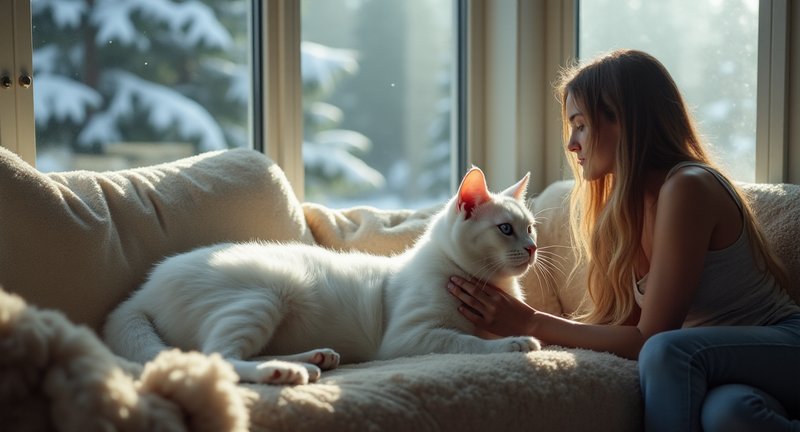
And don’t get me started on their eyes! Those vivid blue or green orbs hold a spark of mischief and curiosity that invites you in. You can’t help but feel a connection, as if they’re sharing secrets from their feline world.
Caring for these beautiful creatures is an adventure in itself. They thrive on interaction and love to engage with their human companions. It’s a joy to see them pounce after toys, their enthusiasm echoing through the house.
In the end, welcoming one of these magnificent cats into your home isn’t just about having a pet; it’s about embracing a lively spirit that can turn an ordinary day into something extraordinary. Trust me; it’s a journey worth taking.
Unique Appearance of the Snow Lynx Variant
When you lay eyes on the captivating Snow Lynx variant, you can’t help but feel a magnetic pull. These cats boast a unique appearance that sets them apart in the feline world, and let me tell you, it’s a sight to behold! The first thing that strikes you is their mesmerizing coat, characterized by strikingly bold patterns that mimic the beauty of snowflakes on a winter’s day.
Key Features of the Snow Lynx Variant:
- Dazzling Coat: Their fur combines a soft, creamy base with dramatic rosettes and spots, creating an eye-catching contrast that plays with light.
- Glacial Blue Eyes: One glance into their stunning blue eyes, and you might find yourself lost in a world of whimsy; they truly sparkle with personality.
- Playful Prowess: Don’t be fooled by their elegance; these cats are spirited and love to frolic. Their playful nature adds a delightful dynamic to their unique charm.
From my own experience, these majestic creatures possess a character that mirrors their striking appearance. They can be both independent and affectionate, often seeking out human companionship while also maintaining their adventurous spirit. The joy they bring is akin to having a miniature wildcat in your home, filled with playful antics that keep you entertained for hours.
Caring for a Snow Lynx variant involves appreciating their unique beauty and ensuring they have an enriched environment. As someone who has spent countless hours observing their antics, I can assure you, every moment spent with these felines is worth it. They truly are a marvel of nature, and once you welcome one into your life, you’ll understand the allure they hold.
The History of the Bengal Cat Breed
When we discover the intriguing history of the Bengal cat breed, we’re not just talking about adorable pets with striking coats; we’re exploring a fascinating context of genetics, artistry, and passion. The Bengal cat’s origins can be traced back to the 1960s, when a remarkable mix of wild Asian leopard cats and domestic breeds began to flourish. This fusion wasn’t just a chance encounter it was the brainchild of breeders who sought to capture the wild beauty of the leopard in a domestic setting.
Here are some key milestones in the Bengal cat’s development:
- 1970s Beginnings: The first intentional breeding of Bengals began, focusing on creating a cat that retained wild markings while exhibiting a friendly temperament.
- Recognition and Standards: In the 1980s, the International Cat Association (TICA) began to recognize the breed, establishing standards that helped define the Bengal’s unique features.
- Popularity Surge: The 1990s saw a meteoric rise in the Bengal’s popularity, thanks to their exotic appearance and playful personality, attracting a legion of devoted fans.
From my perspective, owning a Bengal is like having a little piece of the wild right in your living room. Their dynamic personalities are complemented by an endless curiosity and intelligence that keeps you on your toes. You’ll find them exploring every nook and cranny, reminding you that they’re not just pets but companions with a zest for life.
If you ever get the chance to meet one, prepare yourself for a whirlwind of energy and affection. The Bengal cat breed is truly a celebration of nature’s artistry, and it’s a privilege to share life with such a unique creature.
Characteristics of Snow Bengals
When I first encountered these magnificent felines, I was captivated by the unique characteristics that set them apart. If you’re curious about what makes them so special, let’s realize their standout features:
Distinctive Appearance
- Striking Coat: Their fur resembles the soft kiss of fresh snow, often adorned with rosettes and spots that mimic the patterns of wild leopards.
- Eyes of Enchantment: Bright blue or green, their eyes sparkle with intelligence, drawing you into their playful nature.
- Graceful Build: With a sturdy yet sleek body, they move with the agility of a gymnast, ready to leap into action.
Engaging Personality
- Playful Spirit: These cats are the ultimate entertainers, often engaging in playful antics that can keep you amused for hours.
- Affectionate Companions: Don’t be surprised if they choose to snuggle up beside you. Their warmth is both comforting and inviting.
- Curiosity Unleashed: Ever the explorers, they thrive on investigating their surroundings, making every nook and cranny an adventure.
Behavioral Traits
- Vocalization: With a repertoire of sounds ranging from chirps to purrs, they communicate their needs and feelings in a way that’s hard not to notice.
- Intelligence: They are quick learners, often mastering tricks and even using puzzle toys to challenge their minds.
In my experience, these beautiful cats are not just pets; they’re like little spirits of the wild, bringing joy and wonder into everyday life. If you’re considering adding one of these captivating creatures to your family, be prepared for a delightful journey.
Temperament and Personality Traits
When discussing exploring the intriguing world of cats, temperament and personality traits can be as unique as a fingerprint. I’ve found that understanding these nuances adds depth to our relationship with these majestic creatures. In my journey, I’ve come across a few standout traits that seem to define certain breeds, particularly those that capture a bit of wild spirit.
Here’s what I’ve discovered:
-
Playfulness: These cats possess an almost childlike exuberance. They leap, pounce, and chase like little furry ninjas. It’s a joy to witness their acrobatics, reminding us that a sense of humor can brighten our day.
-
Curiosity: Ever notice how some cats treat their homes like a vast safari? Their investigative nature means they’ll explore every nook and cranny, often getting into mischief. This trait can lead to endless entertainment, but it also requires some extra precautions around delicate items!
-
Affectionate Nature: Contrary to the stereotype of aloofness, many of these breeds thrive on human interaction. They might curl up on your lap or nuzzle your hand, demonstrating that they value companionship just as much as their independence.
-
Intelligence: These cats are quick learners and often showcase their smarts through tricks or problem-solving skills. Engaging their minds with puzzle toys or interactive play can prevent boredom and keep them happy.
-
Social Behavior: Some have an innate sociability, enjoying the company of other pets and even strangers. Their friendly demeanor can make them the life of the party or at least the household!
Understanding these traits not only enriches our bond with them but also helps us create an environment that caters to their vibrant personalities. Every encounter with these fascinating felines can be a lesson in joy, curiosity, and companionship.
Health Considerations for Lynx Point Bengals
In the matter of the health considerations for Lynx Point Bengals, there are a few key factors I’ve discovered that can make a world of difference in their well-being. These striking cats, known for their unique coat patterns and playful personalities, can face specific health challenges. Here’s what I’ve learned from experience:
Key Health Considerations:
-
Genetic Predispositions: Like many breeds, Lynx Point Bengals can be prone to certain genetic conditions. Regular check-ups with a vet who understands their specific needs are crucial.
-
Dietary Needs: A balanced diet is vital. High-quality protein and limited carbohydrates keep their energy levels optimal. Look for cat foods that list meat as the primary ingredient.
-
Hydration: Bengals can sometimes forget to hydrate, especially if they’re eating dry food. Incorporating wet food into their diet or ensuring fresh water is always available can help keep them hydrated.
-
Exercise: These cats are known for their high energy. Providing plenty of interactive playtime, scratching posts, and climbing structures will keep them stimulated and fit.
-
Dental Health: Regular dental care can prevent periodontal disease, which is common in Bengals. Consider dental treats or even brushing their teeth if they’re comfortable with it.
Final Thoughts:
Keeping a watchful eye on these health aspects not only enhances their quality of life but also deepens the bond between you and your feline companion. I can assure you, every little effort counts in nurturing their unique vitality and spirit.
Grooming Needs and Maintenance Tips
Regarding grooming our feline friends, especially those with unique coats, the ritual can feel like an adventure. Each brushing session unveils a world of softness and splendor, revealing the intricate patterns hidden beneath the surface.
Regular grooming not only keeps their fur looking fabulous but also serves as a wonderful bonding experience. Trust me, there’s something magical about watching your cat melt into relaxation while you gently untangle any knots.
Don’t overlook those adorable ears and the tiny paws! Cleaning around these areas is essential for overall health. A simple wipe with a damp cloth can work wonders, keeping everything spick and span.
Bathing might seem daunting, but it can be a necessary part of the maintenance dance. Just a few drops of gentle shampoo and a splash of warm water can transform the grooming experience into a delightful spa day for your cat.
Always keep an eye on their claws, as well. Regular trimming prevents potential hazards and keeps their playful antics safe and sound. Plus, it’s a great excuse to shower them with treats after each successful snip.
Also, don’t forget to celebrate their uniqueness. Each coat has its own story, and with the right care, your feline companion will strut its stuff like the majestic creature it is. So gear up, embrace the grooming journey, and enjoy every moment spent with your furry buddy.
Ideal Living Conditions for This Breed
Creating the perfect environment for a Snow Lynx Bengal is essential for their happiness and well-being. Having had the joy of sharing my space with this striking breed, I can tell you that they thrive under specific conditions that mimic their wild ancestry. Here’s what I’ve learned:
Ideal Living Conditions
-
Space to Roam:
- Vertical and Horizontal Space: They love to climb! Cat trees or shelves provide them with the opportunity to explore at different heights.
- Room to Run: A spacious home allows them to unleash their playful spirit.
-
Temperature Control:
- Comfortable Climate: Arctic lynx bengals prefer temperatures between 70degF and 80degF. They’re not fans of extreme heat or cold.
- Ventilation: Good airflow is key; make sure your home is well-ventilated to keep them cool and comfortable.
-
Enrichment Activities:
- Interactive Toys: Invest in puzzle feeders or toys that challenge their intelligence.
- Playtime: Dedicate time each day to engage them in interactive play. They are natural hunters, so feather wands and laser pointers are a hit.
-
Safe Outdoor Access:
- Catios or Leashed Walks: If possible, create a safe outdoor space for them to enjoy the sights and sounds of nature.
- Supervised Time Outside: Always supervise outdoor activities to keep them safe from potential dangers.
In my experience, creating a vibrant, engaging environment for a Frosted bengal not only keeps them happy but strengthens the bond you share. When their needs are met, they flourish, becoming not just pets, but family members.
Diet and Nutrition for Optimal Health
When dealing with achieving optimal health, I’ve found that diet and nutrition play a pivotal role. In my own journey, I’ve discovered that incorporating diverse, nutrient-rich foods can make all the difference. Here’s how I approach it:
-
Colorful Plate: I always aim for a rainbow on my plate. Vibrant fruits and vegetables are not just eye-catching; they provide essential vitamins and minerals. Think of deep greens, rich reds, and sunny yellows.
-
Quality Protein: Lean meats, legumes, and even nuts are my go-to sources of protein. They help in muscle repair and growth, which is essential for staying active. I’ve found that mixing plant-based proteins with animal sources gives me a well-rounded nutrient profile.
-
Healthy Fats: Avocados and olive oil are my favorite fats. They add flavor and provide energy. Plus, they’re fantastic for heart health something I never skimp on.
-
Hydration: Water is my best friend. I keep a bottle handy throughout the day to ensure I’m well-hydrated. Herbal teas also make a delightful alternative.
-
Mindful Eating: I’ve learned to slow down during meals. Enjoying every bite not only enhances the experience but also allows me to listen to my body’s hunger cues.
Adopting these habits has transformed my health in ways I never imagined. Remember, it’s not just about what you eat but how you approach your meals. Each bite can be a step towards a healthier you.
Training Your Bengal Lynx Variant Cat
Training your Bengal lynx variant cat can be an enchanting journey. From their captivating looks to their playful demeanor, these felines are more than just pets; they’re companions who thrive on interaction and stimulation. Here’s a glimpse into my experience with these majestic cats and some tips to help you along the way.
Understanding Their Nature:
- Intelligent & Curious: These cats are like little detectives, always exploring their surroundings. Engage their minds with puzzle toys or treat dispensers.
- Playful Spirits: Their playful antics can light up a room. Invest in feather wands and laser pointers to satisfy their hunting instincts.
Training Tips:
- Positive Reinforcement: Use treats and affection to reward desired behaviors. It’s like speaking their love language.
- Short Sessions: Keep training sessions brief (5-10 minutes). Their attention spans can be as fleeting as a sunbeam on a cloudy day.
- Consistency is Key: Establish a routine. These cats thrive on predictability, much like I do with my morning coffee.
Socialization:
- Early Exposure: Introduce them to different environments, people, and pets. It’s crucial for their development, helping them grow into well-rounded adults.
- Gentle Handling: Always handle your Bengal with care. Gentle cuddles and playful roughhousing can strengthen your bond.
In my experience, patience is vital. Training a Bengal lynx variant cat is an art, not a race. Each success, no matter how small, deserves a celebration just like their impressive leaps and bounds across the living room!
Introduction to the Snow Lynx Bengal Cat
Let me tell you about one of the most strikingly beautiful cats I’ve ever encountered. These felines carry the spirit of the wild, but their temperament is that of a curious, playful companion. What makes them so captivating is the way they merge their exotic heritage with a snow-kissed coat, giving them an almost ethereal appearance.
These cats are known for their soft, creamy white fur that sparkles with a distinct pattern. It’s like someone painted them with light strokes of brown, gold, or even charcoal each marking unique, like fingerprints. When the sunlight hits their coats, it seems to dance across their fur in a way that’s nothing short of magical.
Now, don’t let their wild looks fool you. Despite their leopard-like spots and striking appearance, they are incredibly affectionate and love interacting with their humans. They’ll follow you around the house, weaving through your legs, all while keeping their piercing blue eyes locked onto yours.
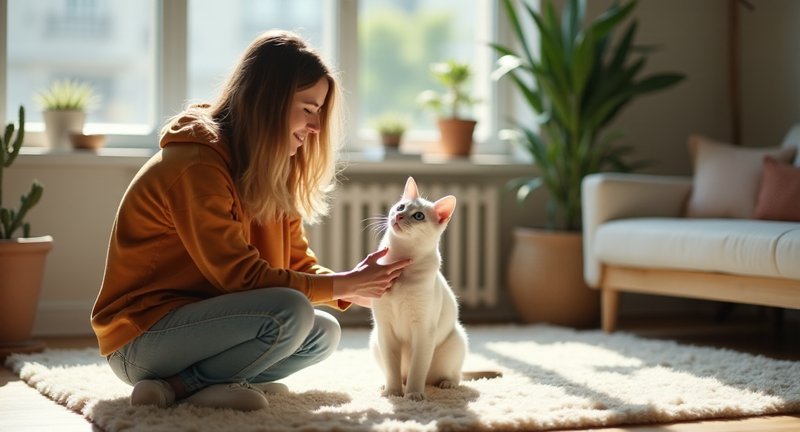
One thing I’ve noticed is how intelligent and active they are. You’ll need to keep their sharp minds busy with puzzles or toys. Otherwise, you might find them getting creative with your furniture! But with the right stimulation, these cats thrive on human connection, making them the perfect addition to any home.
Their coats, those shimmering, frosted patterns, aren’t just beautiful they feel incredibly soft to the touch. Every time you run your hand through their fur, it’s like a reminder of just how special these cats are.
Socialization: The Key to a Happy Cat
When it comes to cats, socialization is truly the secret ingredient to their happiness. Over the years, I’ve noticed that cats, despite their reputation for independence, thrive when they have opportunities to engage with people and other animals. It’s not just about cuddling on the couch; it’s about how they experience the world around them and form bonds that make them feel secure.
The earlier you start socializing a cat, the better. I’ve found that kittens introduced to different people, environments, and even gentle dogs grow into more confident and well-adjusted adults. However, it’s never too late to help an older cat, either trust me, patience pays off!
A few tips I swear by:
- Introduce them slowly: Give your cat time to adjust to new faces and environments. Rushing only creates stress.
- Provide enrichment: Cats are curious by nature. Toys, window perches, and even interactive puzzles stimulate their minds and encourage them to explore.
- Create positive associations: Rewarding your cat with treats or gentle affection after social interactions makes them associate new experiences with positive outcomes.
- Encourage playtime with other pets: If you have other animals, gradual introductions with supervised play can do wonders for your cat’s confidence.
Remember, every cat is unique, and some may need more time than others to feel comfortable. But with a little patience, your feline friend will start to see you and other companions as part of their pack. And when that happens, you’ll see a new side of their personality a happier, more relaxed version that you’ll love even more.
Common Myths About Frosted Bengal Cats
Frosted Bengal cats have long been a source of fascination and mystery, but they’re also surrounded by plenty of myths. One of the most common misconceptions is that their frosted appearance is permanent. I can assure you, it’s not. The frosted coat is temporary, like a winter veil, slowly revealing the rich, stunning colors beneath as they mature.
Another myth I’ve come across is that frosted Bengals are albinos. It’s easy to see why people might think this, given their pale, icy hue as kittens. However, albino genetics have no connection to these beautiful felines. The frosted coat actually comes from a completely different gene.
People often assume frosted Bengals require special care because of their light-colored coats. That’s simply not true. Despite their cool, ghostly appearance, they don’t need anything more than the standard care you’d give to any other Bengal cat.
Then there’s the idea that a frosted Bengal cat will always stay small. I’ve heard this one more than once, and it’s pretty misleading. These kittens do grow into the same athletic, muscular adults that Bengals are known for. Their frosted coat doesn’t affect their size or their wild energy.
Also, some believe that frosted Bengals are rare, almost mythological creatures. While they do have a unique look during their early months, they’re not some elusive species. Trust me, their frosted appearance is more common than you’d think, even if it seems otherworldly at first glance.
How to Choose a Reputable Breeder
Choosing a reputable breeder can feel like searching for a needle in a haystack. Trust me, it’s worth the effort if you want a healthy, happy pet. Start by looking for breeders who are passionate about their animals, not just running a business. Passion shows in every detail, from the environment the cats are raised in to the thoroughness of the health checks.
Make sure to ask about the lineage and genetic testing. A reputable breeder will be more than willing to provide documents and show you their breeding plans. If they hesitate or dodge your questions, that’s a red flag waving in your face.
Always visit the breeding facility, even if it means a road trip. You want to see how the animals are treated and the conditions they live in. Clean, spacious areas where cats are socialized and stimulated are great signs of a well-run program.
Also, pay attention to how the breeder interacts with the cats. Are they gentle? Do the cats seem comfortable and friendly? You can learn a lot from those small, but telling, moments.
Also, go with your gut. If anything feels off, it probably is. Don’t rush the process, and remember, a responsible breeder will want to ask you as many questions as you ask them. After all, they care about where their kittens end up just as much as you care about where they come from.
Most Asked Questions
How much does a snow lynx Bengal Cat cat cost?
The price of a lynx point Bengal cat can vary significantly depending on factors like breeder reputation, lineage, and quality of markings. Generally, the cost ranges from $1,500 to $5,000 or more. Show-quality or cats with particularly rare traits may be at the higher end of the spectrum. Additional costs such as health screenings, vaccinations, and shipping may also impact the final price, so it’s essential to consider these when budgeting for a snow leopard Bengal.
Are snow bengal Cats rare?
Yes, white bengal Cats are relatively rare compared to other Bengal cat colors. Their unique appearance, which combines striking light fur with blue or aqua eyes, makes them a highly sought-after variety. The snow lynx coloration is a result of a specific genetic combination, making it less common than traditional brown or spotted Bengals. Their rarity, combined with their eye-catching looks, often contributes to their higher market price and demand among cat enthusiasts.
What is the difference between a snow lynx and a snow mink Bengal?
The primary difference between snow lynx and snow mink Bengals lies in their coat coloration and eye color. Snow lynx Bengal Cats have a lighter, cream-colored coat with blue or aqua eyes. This coloration comes from the presence of the Siamese gene. Snow mink Bengals, on the other hand, have a slightly darker coat with a warm beige tone and usually sport aqua or greenish-blue eyes. Snow mink Bengals carry both the Siamese and Burmese genes, giving them a distinctive, more intense coloration than lynx point Bengals.
What is the rarest color of Bengal cat?
Among Bengal cats, the rarest color is the charcoal Bengal, which can come in various patterns, such as brown, snow, or silver. Charcoal Bengals are distinct due to their darker face mask and cape-like markings along their back. In addition to charcoal, other rare Bengal colorations include blue and melanistic (black) Bengals. These rare colors are highly sought after, and Bengals displaying these unique traits often come with a premium price tag due to their scarcity.
What is the lifespan of a Bengal snow lynx?
A snow leopard Bengal cat typically has a lifespan of 12 to 16 years when provided with proper care, a balanced diet, regular veterinary checkups, and a healthy environment. With attention to their health and well-being, some Bengals can live even longer. Like other Bengals, snow bengal Cats are generally robust and healthy, but they can be prone to common feline issues such as heart disease (HCM) or joint problems, so routine health checks are essential to maximize their lifespan.
Are white bengal Cats hypoallergenic?
While no cat is entirely hypoallergenic, snow lynx Bengal Cats are often considered a better option for people with mild allergies. Bengals, in general, produce fewer allergens due to their short, pelt-like coats, which shed less than the fur of many other breeds. Their grooming habits also mean less saliva is deposited on their coats, reducing the spread of allergens. However, individuals with severe cat allergies may still react to Bengals, so it’s advisable to spend time with the breed before making a decision.
Are snow Bengals aggressive?
Snow Bengals, like other Bengals, are not inherently aggressive but are known for their energetic and playful nature. While their high energy levels and sometimes wild-looking appearance can be mistaken for aggression, they are generally affectionate and social with proper training and socialization. However, Bengals are very active and require mental and physical stimulation. A lack of interaction or exercise could lead to frustration, which might manifest as aggressive behaviors. Early training and regular playtime can prevent such issues.
Why are snow Bengals so expensive?
Snow Bengals are expensive due to several factors, including their rarity, breeding complexity, and the high demand for their striking appearance. The snow lynx coloration is relatively rare and requires careful genetic pairing, making the breeding process more challenging. Additionally, reputable breeders invest in proper health screenings, vaccinations, and care for their cats, all of which contribute to the price. Furthermore, the Bengal breed, in general, commands higher prices due to its exotic origins and striking, wild-like appearance.
Are Bengal cats cuddly?
Bengal cats can be affectionate, but they are not typically known as lap cats. While they enjoy attention and forming strong bonds with their owners, Bengals are highly active and may prefer interactive play over prolonged cuddling. Their personalities vary from cat to cat, and some Bengals do enjoy snuggling with their humans, particularly when they feel relaxed and secure. Building a trusting relationship from an early age can help encourage more affectionate behavior in a Bengal cat.
What is the most expensive Bengal cat?
The most expensive Bengal cats are often those with rare colors, unique patterns, and superior lineage. Show-quality Bengals, particularly those with rare colorations such as charcoal, blue, or melanistic (black), can command prices upward of $10,000 or more. Additionally, Bengals with strong wild traits and impeccable pedigree, bred for competitions or exhibitions, tend to be the most expensive. Snow Bengals with exceptional markings or rare genetic traits may also reach the higher end of the price spectrum.



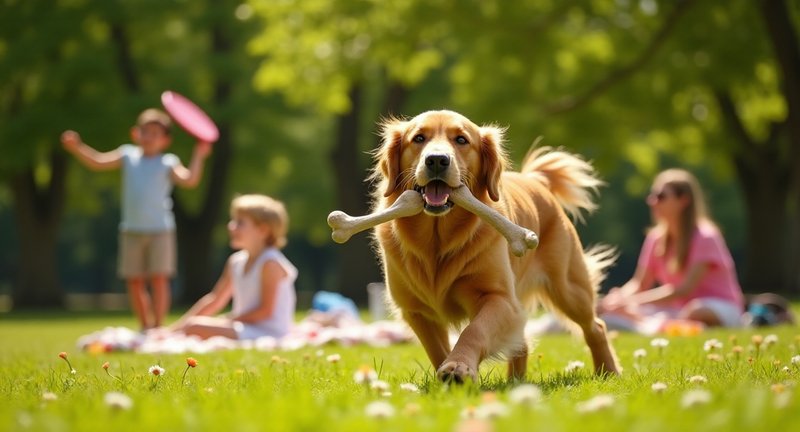
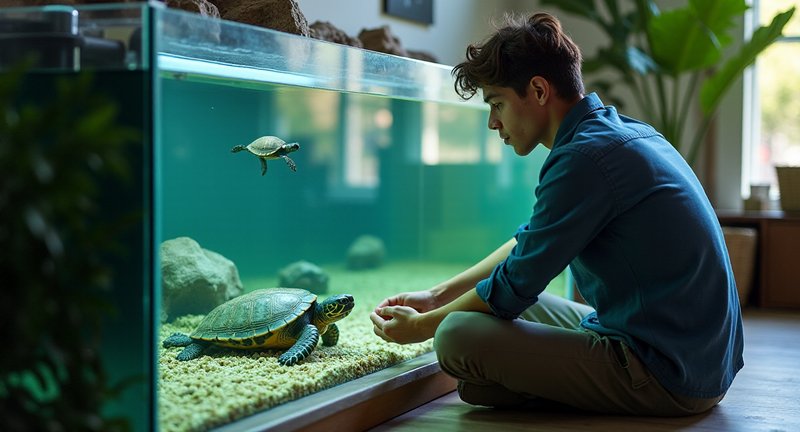



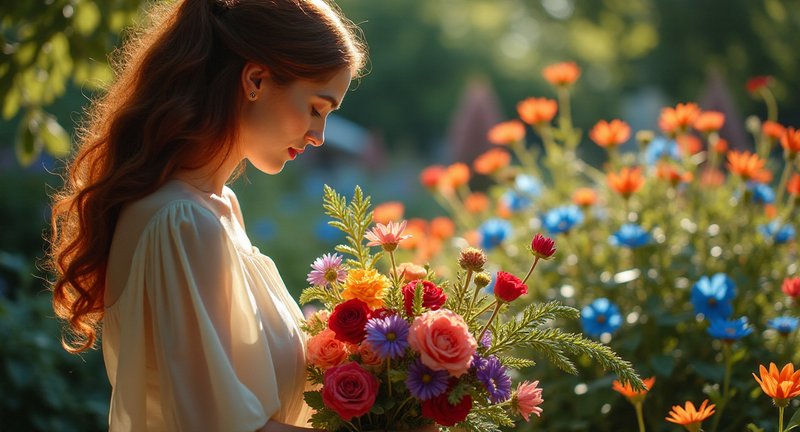


I absolutely love the emphasis on a colorful plate! I’ve always believed that eating should be both a feast for the eyes and the body, and it sounds like you’ve really nailed that concept. I’ve been trying to incorporate more vibrant veggies into my meals, and it’s crazy how much of a difference it makes not just in terms of nutrition, but also in my overall mood. There’s something about seeing those deep greens and bright reds that makes me feel like I’m doing something really good for myself. I also totally agree with the importance of mindful eating. It’s something I’m still working on, but slowing down and really enjoying each bite has helped me become more in tune with what my body actually needs. Oh, and don’t even get me started on hydration I’m practically attached to my water bottle these days! It’s amazing how something as simple as staying hydrated can make you feel so much better throughout the day. Thanks for sharing these tips!
This is such great advice on creating the perfect environment for a Snow Lynx Bengal! I recently added some vertical shelves to my living room, and my Bengal is loving it. It’s like he’s found a whole new world to explore! I also appreciate the temperature tips – I didn’t realize they preferred a specific range, but I’m going to pay more attention to that now. And the enrichment activities – spot on! Interactive toys and feather wands keep him entertained for hours. I’ve been thinking about getting a catio, so this was a great reminder to give him some safe outdoor time too. Thanks for the helpful tips!
I absolutely love how grooming time can turn into such a bonding experience! My little one used to be a bit hesitant about being brushed, but now it’s like a mini spa session for her. I totally agree about the paws and ears too! People often forget how much cleaning those small areas can make a difference. And trimming claws – yes! The treats afterwards are non-negotiable at our house, haha. It’s so sweet watching her strut around after a good grooming, looking like a little queen. Grooming really does help celebrate their uniqueness. Thanks for the reminder to embrace it!
Oh, I couldn’t agree more with these key health considerations for Lynx Point Bengals! I’ve had my Lynx Point for about three years now, and the dietary and hydration points are spot on. I found that switching to a high-protein, grain-free diet made a huge difference in his energy levels, especially with all that playtime they love. And yes, hydration is something I had to pay more attention to. I started adding a pet fountain, and now he drinks so much more water! Also, the dental care point – thank you for mentioning that! I wasn’t aware at first how important it is, but after a few dental treats and getting him used to a toothbrush, it’s made a big difference. It’s amazing how taking care of these little things can make such a positive impact on their overall health. I’ve found that making sure his environment is stimulating with plenty of climbing options and interactive toys has also kept him happy and fit. Thanks for sharing these insights, it’s always great to
Love this take on personality traits! I totally agree that a cat’s temperament is as unique as a fingerprint. Playfulness is a big one for me my cat is constantly pouncing and chasing invisible “prey” around the house, which never gets old. And that curiosity… wow, they’ll explore every single nook, and you’ve got to cat-proof everything! It’s all part of their charm though, right? It’s amazing how much joy they bring!
I love how you described their appearance! The fur that feels like ‘the soft kiss of fresh snow’ is the perfect way to capture that luxurious texture. My Bengal’s coat has those striking rosettes, and it never fails to get compliments. Their eyes are something else too my guy’s eyes are this mesmerizing shade of green, and they almost seem to glow with mischief. It’s crazy how agile they are! Mine is always leaping across the room like some kind of furry ninja gymnast. And you’re so right about their playful spirit. It’s like having a permanent entertainer around, and they keep me laughing with their antics. They also love puzzle toys super smart, right? I swear, I feel like I’m living with a little genius sometimes! Anyone thinking about getting one should be ready for a whirlwind of fun and affection. Thanks for sharing such a great breakdown of their unique features.
Wow, this deep dive into the Bengal cat’s history is so fascinating! I always knew they had a wild look, but I had no idea their origins were a blend of domestic and wild genes dating back to the 1960s. It’s incredible how breeders intentionally created this breed to have that exotic leopard-like appearance with a sweet, friendly temperament. I can totally relate to the feeling of having a mini wildcat in the house. Mine is always getting into things, constantly curious and exploring every corner! It’s like having a little piece of nature indoors. And their personalities really do shine through playful, affectionate, and smart. Thanks for highlighting the milestones too; it’s crazy how they’ve surged in popularity so quickly since the 1990s! I feel lucky to share my life with one of these remarkable creatures.
The way you describe the Snow Lynx’s eyes – I felt that! Those glacial blue eyes can really draw you in. I remember thinking the exact same thing when I first saw one. They’re like little snow leopards in your living room. Totally magical!
This post totally resonates with me! I’ve seen a Snow Lynx Bengal once, and you’re spot-on with how breathtaking they are. The way their fur almost glows in the light, combined with those intricate rosettes, it’s like looking at a living work of art. I couldn’t stop watching how gracefully they moved. It’s fascinating how nature can create such detailed beauty, right? And you’re so right about their personalities. They always seem so curious, and it’s like their eyes are just brimming with secrets! I’ve only met one, but after reading your post, I definitely want to learn more about this breed. They sound like such fun companions!
Oh wow, the way you’ve described the Snow Lynx Bengal really brings them to life! I’ve always been fascinated by the Bengal breed, but I never realized how unique the Snow Lynx variant was until now. The combination of their elegant look with that playful personality sounds like the perfect balance. And I absolutely love that they’re so intelligent – it must be super rewarding to watch them solve puzzles or explore new toys! I have a friend who owns one, and every time I visit, I’m amazed at how graceful and energetic they are. They’re like little adventurers in the house! Honestly, I’ve been thinking about getting a cat myself, and this just might have pushed me closer to the decision. Also, the idea of those expressive eyes with vivid colors like blue or green? Sign me up! Thanks for sharing this delightful insight into such a beautiful breed!